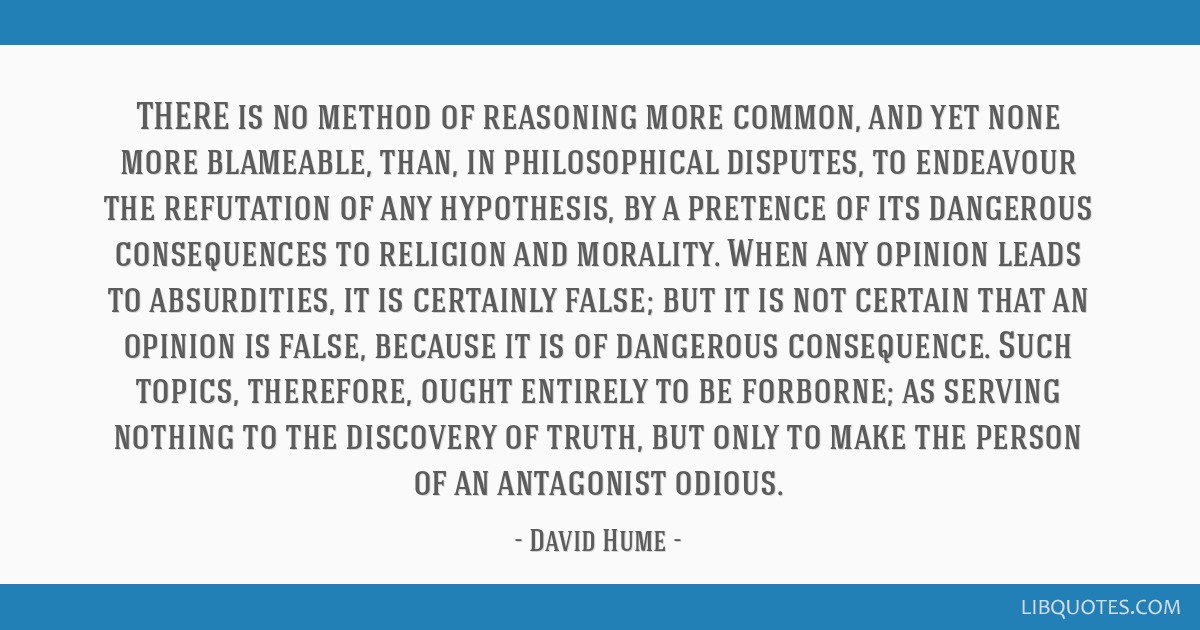THERE is no method of reasoning more common, and yet none more blameable, than, in philosophical disputes, to endeavour the refutation of any hypothesis, by a pretence of its dangerous consequences to religion and morality. When any opinion leads to absurdities, it is certainly false; but it is not certain that an opinion is false, because it is of dangerous consequence. Such topics, therefore, ought entirely to be forborne; as serving nothing to the discovery of truth, but only to make the person of an antagonist odious.
Of Liberty and Necessity, Part II (http://www.bartleby.com/37/3/12.html) - An Enquiry Concerning Human Understanding (1748)
Of Liberty and Necessity. Part II. Hume, David. 1909-14. An Enquiry Concerning Human Understanding. The Harvard Classics[bartleby.com]























